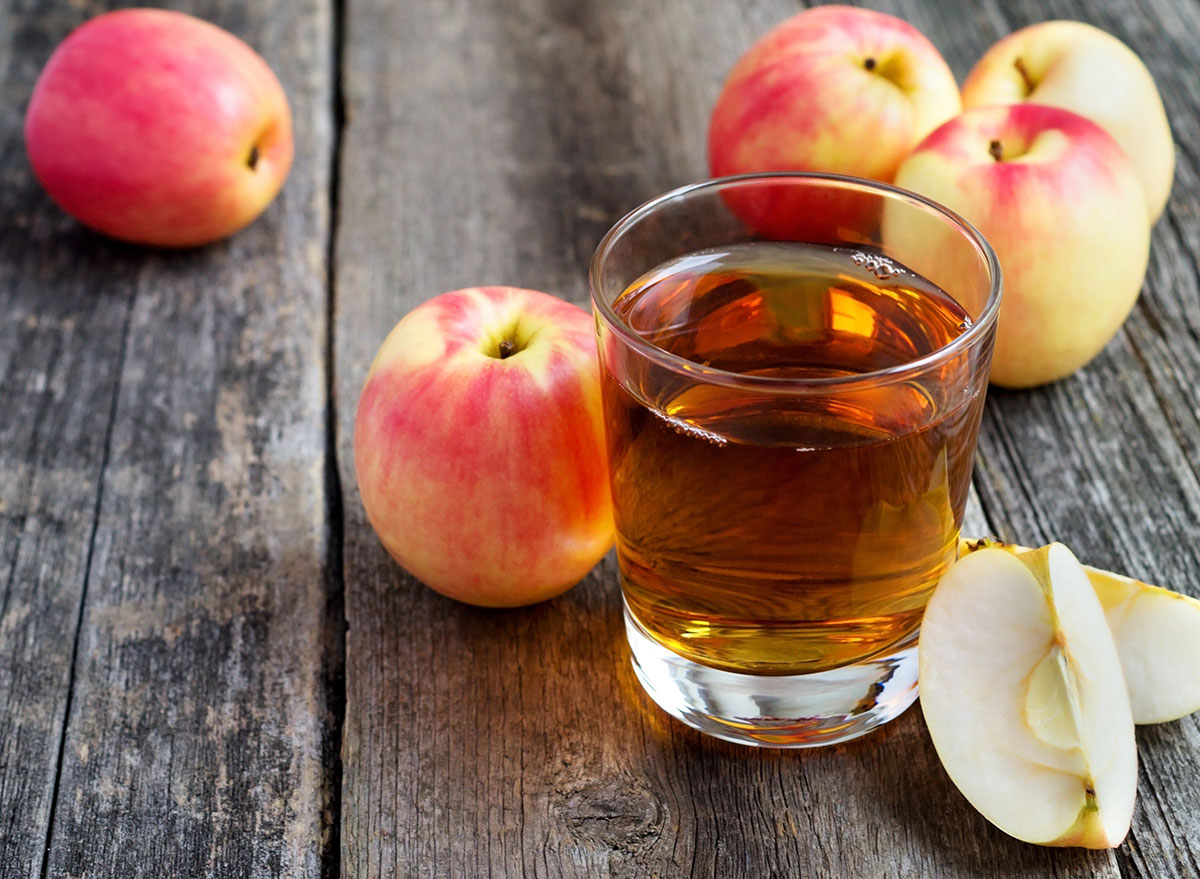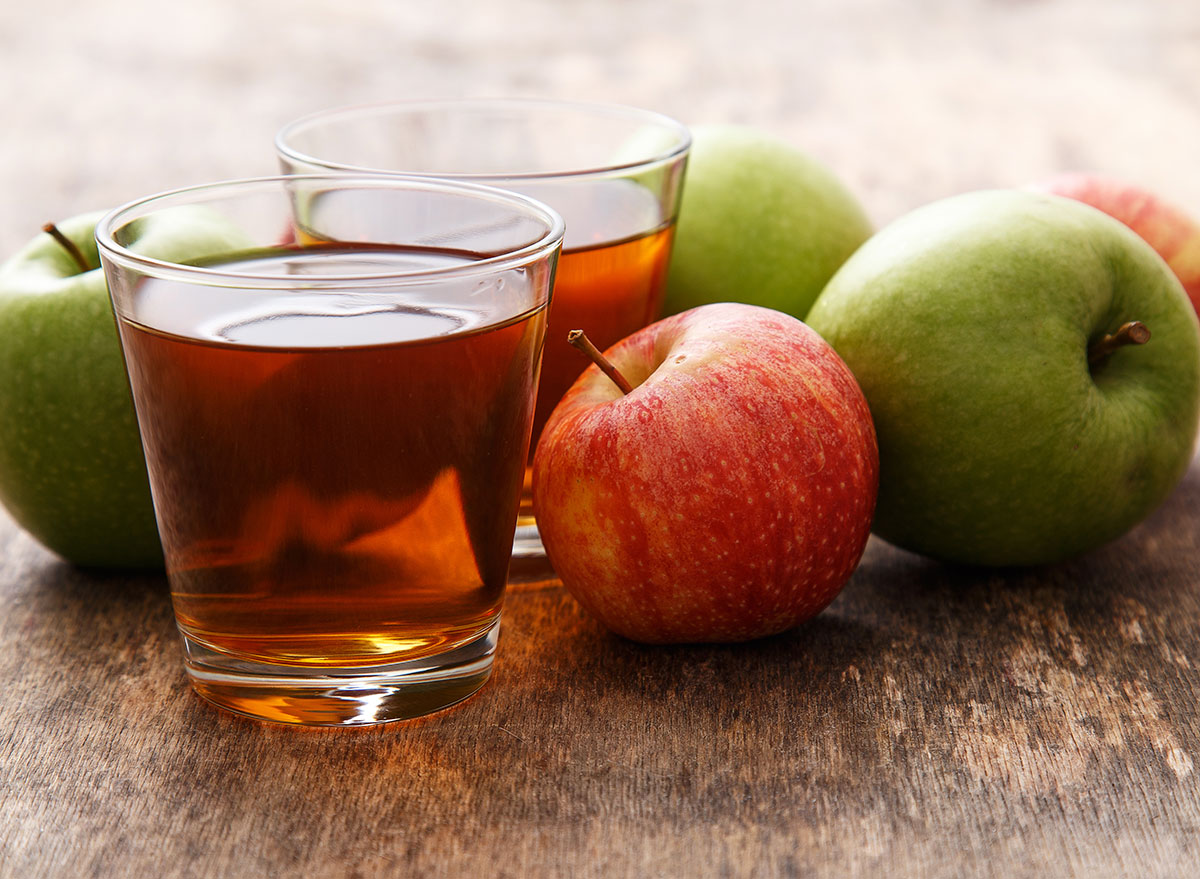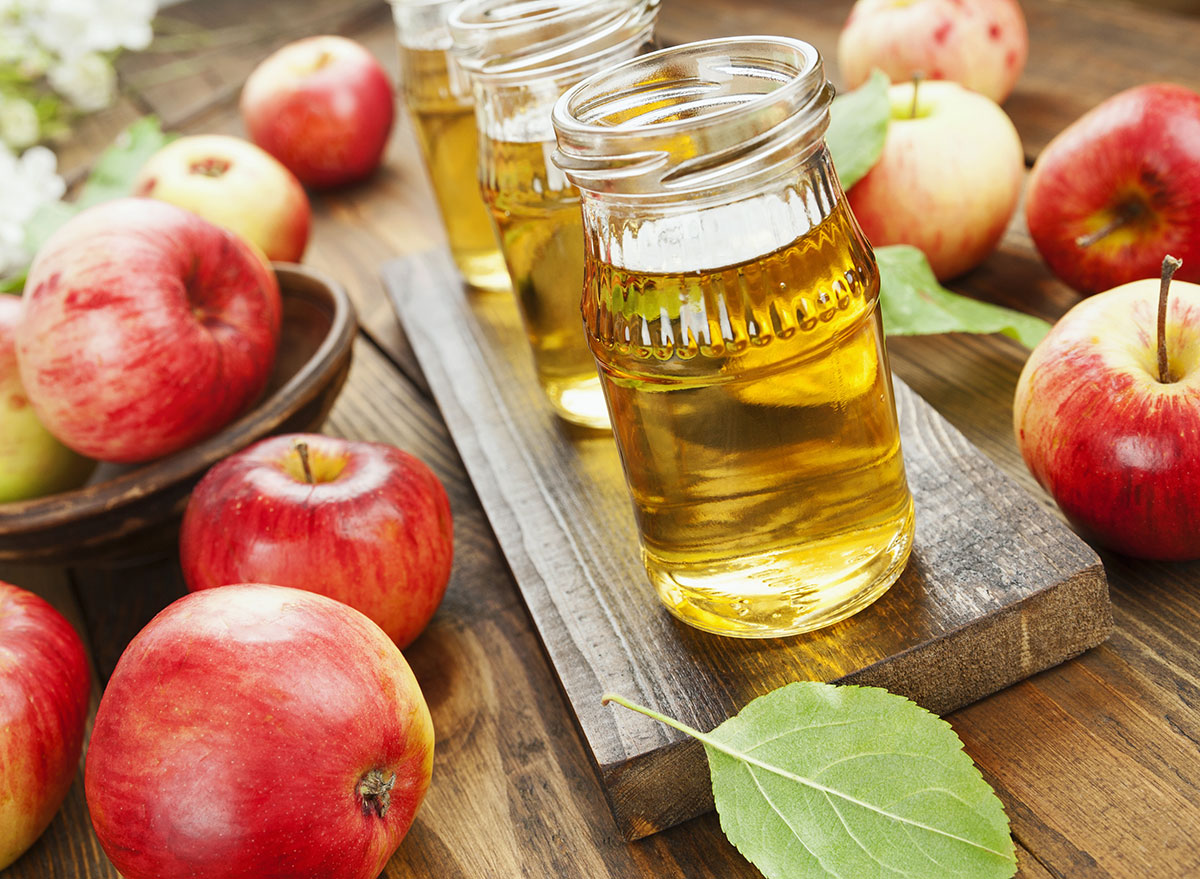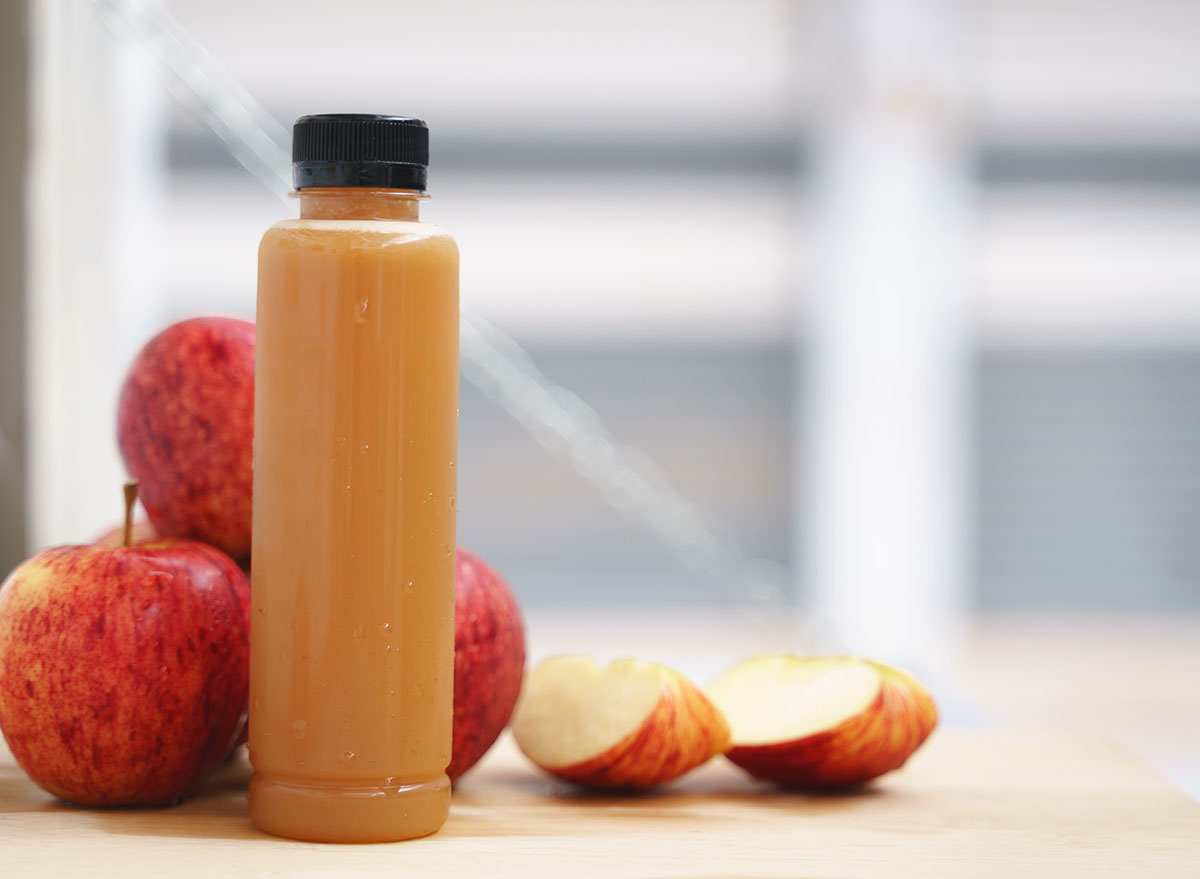Health Benefits of Apples
10 Impressive Health Benefits of Apples
Apple juice is regarded as one of the healthiest fruit drinks available, with various advantages. Many plant chemicals found in this versatile fruit juice are utilised to cure a variety of diseases. This beverage is well-liked all around the world due to its high nutritional value. When apples are juiced, their hydrating properties are amplified. Polyphenols and flavonoids in this tasty juice have anti-cancer, anti-allergic, and anti-inflammatory properties. The juice has been shown to improve heart health, alleviate asthma symptoms, promote weight loss, and lower the risk of certain cancers. “An apple a day keeps the doctor away,” they say.
Apples and apple juice not only promote a healthy body and mind, but they also aid to develop muscles. Apple juice is also one of the tastiest and most popular among children. The fruit and its juice are high in vitamins, calcium, potassium, and magnesium, and they pack a powerful health punch. Apple juice, which is high in pectin and fibre, can help you feel more energised. Apple juice, as the richest source of phenolic compounds, aids in the fight against common infections when consumed on a daily basis.
Apples are grown all throughout the world, and the fruit helps the body stay healthy and fit. The delightful fruit is available in over 7,000 different types and comes in stunning red, green, and yellow hues. Apple is high in vitamins and other critical components that contribute to the body’s vigour and vitality. It has a delicious taste and a tart hue.
Apples are one of the most widely consumed fruits, and with good reason. They’re a super-healthy fruit with a slew of research-backed advantages.
What is Apple Juice?
Apple juice is prepared by pressing apples, which come in hundreds of different types around the world. Because one cup of juice requires two medium-sized fruits, these fruits are grown in large quantities. Most juices are filtered or pasteurised after the apples are pressed, which helps to remove any particle matter and gives the final extract a thinner consistency.
The most popular types of apples used to manufacture this delectable juice are McIntosh apples, and China is the world’s greatest apple grower. There’s a lot of discussion over apple cider vs apple juice. Apple cider is a fermented, unfiltered, and unpasteurized drink made from pressed apples. For all apple fans, we’ve included a complete recipe for making apple juice in the comfort of your own home.
Skin Care
Apples come in a variety of forms, including fresh fruit and juice that is processed into apple vinegar, apple cider, or distillation. Apple juice is good for the skin since it is high in antioxidants and vitamin C. It aids in the reduction of swelling, irritation, and wrinkles. It also helps to prevent premature skin ageing.
Protect Brain Health
Antioxidants are known to protect the body from oxidative stress. According to a comprehensive study published in the Advances in Nutrition journal in 2011, apple juice may reduce the risk of Alzheimer’s disease. Another study from 2010 found that the antioxidants in this fruit juice may assist to alleviate the symptoms of neurological illnesses.
Boosts Metabolism
Long-term studies may have connected apple juice drinking to smaller waistlines, lower levels of body fat, lower cholesterol, a decreased risk of diabetes, and lower blood pressure, all of which are metabolic syndrome risk factors. As a result, apple juice can aid in the optimization of your metabolism and may even protect your heart.
Improves Liver Function
Malic acid, as previously stated, can help to improve liver function. When apple juice is mixed with water, it may increase urination and aid in the removal of excess salts and fats from the body. The alkaline content may also aid in the removal of toxins and the maintenance of a healthy pH balance in the body, potentially serving as a liver cleanser.
Here are 10 impressive health benefits of apples.
1. Apples Are Nutritious
A medium apple — with a diameter of about 3 inches (7.6 centimeters) — equals 1.5 cups of fruit. Two cups of fruit daily are recommended on a 2,000-calorie diet. One medium apple — 6.4 ounces or 182 grams — offers the following nutrients (1Trusted Source):
- Calories: 95
- Carbs: 25 grams
- Fiber: 4 grams
- Vitamin C: 14% of the Reference Daily Intake (RDI)
- Potassium: 6% of the RDI
- Vitamin K: 5% of the RDI
Furthermore, the same amount offers 2–4% of the recommended daily intake (RDI) for manganese, copper, and vitamins A, E, B1, B2, and B6.
Apples are high in polyphenols as well. While these plant components aren’t listed on nutrition labels, they’re believed to be responsible for many of the health advantages. Leave the peel on apples if you want to get the maximum fibre and polyphenols out of them.
2. Apples May Be Good for Weight Loss
Apples are high in fibre and water, both of which help them fill you up. People who ate apple slices before a meal felt fuller than those who ate applesauce, apple juice, or no apple products, according to one study.
In the same study, participants who began their meal with apple slices consumed 200 less calories on average than those who did not. In a 10-week study of 50 overweight women, those who ate apples dropped an average of 2 pounds (1 kg) and consumed fewer calories overall than those who ate oat cookies with comparable calorie and fibre content.
Apples are thought to be more full since they are less energy dense while still providing fibre and volume, according to researchers. Furthermore, several of the natural substances found in them may help you lose weight. Obese mice given a supplement of powdered apples and apple juice concentrate lost more weight and had lower levels of “bad” LDL cholesterol, triglycerides, and total cholesterol than the control group, according to a study.
3. Apples May Be Good for Your Heart
The consumption of apples has been related to a reduced risk of heart disease. One reason could be that apples contain soluble fibre, which can help decrease cholesterol levels in the blood. Polyphenols, which have antioxidant properties, are also present. The peel contains a high concentration of these. Epicatechin, a flavonoid, is one of these polyphenols that may help to decrease blood pressure. According to a review of research, high flavonoid intake was connected to a 20% decreased risk of stroke. Flavonoids lower blood pressure, reduce “bad” LDL oxidation, and function as antioxidants, all of which can help avoid heart disease.
Another study compared the effects of eating one apple a day to taking statins, a kind of cholesterol-lowering medications, and found that apples were virtually as effective as the drugs at reducing death from heart disease. However, because this was not a controlled study, the results should be regarded with caution. Consumption of white-fleshed fruits and vegetables, such as apples and pears, was connected to a lower risk of stroke in another study. The risk of stroke was reduced by 9% for every 25 grammes — roughly 1/5 cup of apple slices — ingested.
4. They’re Linked to a Lower Risk of Diabetes
Apple consumption has been associated to a decreased incidence of type 2 diabetes in several studies (10Trusted Source). When compared to not eating any apples, eating an apple a day was connected to a 28 percent lower risk of type 2 diabetes in one big study.
Even a few apples per week provided a same level of protection. It’s likely that the polyphenols in apples protect beta cells in your pancreas from tissue damage. Beta cells in the body create insulin and are frequently destroyed in persons with type 2 diabetes.
When you drink apple juice, you will get nutrients.

The fact that apple juice is made from apples cannot be denied. The old adage goes, “An apple a day keeps the doctor away,” and while this isn’t totally true for apple juice, it’s also not wholly wrong. Allison Gregg, RDN, LD/N, Mom Loves Best’s nutritional consultant, adds, “It’s high in potassium.” “It acts as a vasodilator, relaxing blood vessels and lowering blood pressure.
These two components work together to reduce the risk of heart disease.” Dr. Anam Umair, a licenced dietitian with a Ph.D. in therapeutic nutrition and its pathophysiology, claims that the oxidants in apples can protect the lungs from oxidative damage. As a result, apple juice may be beneficial in the prevention of asthma. While apples have numerous health advantages on their own, adding additives to apple juice can enhance those benefits even more. RD “Apple juice is frequently fortified with Vitamin C,” Natalie Allen adds. “It’s a fun and easy way to get the appropriate amount of this key nutrient.” What Happens to Your Body When You Take Vitamin C Every Day?
Your digestion could improve.

Apple juice is supposed to help relieve constipation in children. The fructose and sorbitol in the juice, according to Allen and Umair, are essential. The only disadvantage? It’s possible that the impact will be too much for you. Gregg warns, “Apple juice can cause diarrhoea.” “Because of its high sugar content, it may induce intestinal issues.
Your body can only metabolise a certain amount of fructose at any given moment. If you eat too much, you can get diarrhoea.” Sign up for our newsletter to get even more healthy tips delivered to your inbox!
You’ll crave more sugar.

Here’s a stunning fact: according to Umair, bottled apple juice has more sugar than soda. If you’re avoiding soda due of its high sugar content, apple juice, as well as these Sugariest Juices on Grocery Store Shelves, should be on your no-drink list.
The thing about sugar is that after you’ve had enough to elevate your blood sugar, your brain activates an automatic response, and you need more, as we’ve discovered from previous sessions with nutritionists like Sharon Katzman. You’re more likely to seek other sweets if you consume a cup of sugary apple juice, for example.
It can lead to weight gain.

The “matrix effect,” according to Dr. J. Salim, DMD, is to blame for many of the health concerns connected with apple juice use. For those unfamiliar with the term, this effect refers to the fact that fructose, the organic sugar found in fruits, occurs naturally inside a matrix of fibres, minerals, and vitamins. “Because fructose is ‘locked’ in a fibrous matrix in the presence of this matrix, fructose is released more slowly in the body,” Salim adds.
When a fruit is broken down, for example, from an apple to apple juice, the matrix dissolves. “As a result, eating the whole apple with all of its fibres is far healthier for us than drinking the juice, which has a lot more sugar and a lot less fibre,” Salim argues. “Drinking apple juice raises insulin levels in the blood, causing a significant portion of the juice’s calories to be stored as fat.” Allen suggests diluting your apple juice and restricting your serving amount to counteract these effects.
It could damage your teeth.
 Apple juice is also an acidic beverage, which is a little-known fact. The high sugar level (which makes the drink even more acidic!) is cause for caution, according to Jin Lin, a board-certified paediatric dentist and owner of Hurst Pediatric Dentistry.
Apple juice is also an acidic beverage, which is a little-known fact. The high sugar level (which makes the drink even more acidic!) is cause for caution, according to Jin Lin, a board-certified paediatric dentist and owner of Hurst Pediatric Dentistry.
They May Have Prebiotic Effects and Promote Good Gut Bacteria
Apples contain pectin, a type of fibre that acts as a prebiotic. This means it feeds the healthy microorganisms in your stomach. During digestion, fibre is not absorbed by the small intestine. Instead, it travels to your colon, where it can aid the growth of beneficial bacteria. It also degrades into other healthy chemicals that circulate back into your body.
According to current research, this may explain why apples have anti-obesity, anti-diabetes, and anti-heart disease properties.
Substances in Apples May Help Prevent Cancer
In test tube investigations, apple plant components were associated to a decreased risk of cancer. Furthermore, eating apples has been linked to a lower risk of cancer death in women, according to one study. According to scientists, their cancer-preventive qualities are attributed to their antioxidant and anti-inflammatory capabilities.
Apples Contain Compounds That Can Help Fight Asthma
Apples are high in antioxidants, which may help protect your lungs from oxidative damage. According to a big study including over 68,000 women, those who ate the most apples had the lowest incidence of asthma. A daily intake of around 15% of a large apple was connected to a 10% reduction in the chance of developing this illness. The flavonoid quercetin found in apple skin can help regulate the immune system and prevent inflammation. These are two possible effects on asthma and allergy responses.
Apples May Be Good for Bone Health
Fruit consumption has been associated to increased bone density, which is a measure of bone health. Fruit’s antioxidant and anti-inflammatory properties may help enhance bone density and strength, according to researchers. Apples, in particular, have been shown in several studies to be beneficial to bone health. In one study, women were given the option of eating fresh apples, peeled apples, applesauce, or no apple products at all. Those who ate apples lost less calcium than those who did not eat apples.
Apples May Protect Against Stomach Injury From NSAIDs
Nonsteroidal anti-inflammatory medicines (NSAIDs) are a type of pain reliever that can harm the lining of your stomach. In a test tube and rat investigation, freeze-dried apple extract helped protect stomach cells from NSAID-induced harm. Chlorogenic acid and catechin, two plant chemicals found in apples, are regarded to be particularly beneficial. However, human research is required to corroborate these findings.
Health Benefits Of Apple Juice
With its vast spectrum of nutritious characteristics, apple juice may aid in the treatment of a variety of diseases. It can help you lose weight and enhance your heart health. To learn more, continue reading.
May Support Heart Health
Apples are high in plant chemicals that are good for your heart, such as polyphenols and flavonoids.
(1). According to one study, polyphenols may help to keep harmful (LDL) cholesterol from being oxidised and forming plaque in the arteries.
(2). Apple juice has antioxidant properties and lowers the risk of coronary heart disease.
(3). Another study from the Federal University of Santa Catarina discovered that drinking apple juice improved blood serum lipid peroxidation and antioxidant levels.
(4). Potassium is abundant in apple juice. The mineral is necessary for good heart health. Potassium is a vasodilator, which means it relaxes blood vessels and lowers blood pressure.
(5) It has been shown to lower the risk of heart disease.
May Relieve Symptoms Of Asthma
Apple juice has anti-inflammatory and anti-allergenic characteristics, which may help to alleviate asthma symptoms. The fruit juice is well-known for its ability to keep asthma attacks at bay.
Furthermore, the polyphenols in the juice help to improve lung health and lower the chance of developing pulmonary disorders.
According to the most recent studies, people who drink apple juice on a regular basis may have superior lung function.
It has the potential to relieve constipation.
Constipation is a serious medical condition caused by the large intestine absorbing too much water. Sorbitol, which is found in apples, is a remedy to this problem (9). This chemical attracts water into the colon when it reaches the large intestine. This softens the stool and makes it easier to pass.
It’s possible that it’ll help you lose weight.
Polyphenols, carotenoids, and dietary fibre are abundant in apples. Weight loss may be aided by the drinking of apple juice. Apple polyphenols were revealed to have anti-obesity properties in a study conducted by the Isfahan University of Medical Sciences.
Experiments on animals and humans demonstrate that eating apples in various ways can help overweight people lose weight. Flavonoids are abundant in apples. Increased eating of fruits high in flavonoids may aid in weight loss.
It’s possible that it has anticancer properties.
Flavonoids and phenolic acids have been shown to be useful in preventing tumours and malignant cells from developing. The presence of certain phytochemicals and antioxidants in apples may serve as a carcinogen, according to a study undertaken by the Federal University of Sao Paulo.
However, further research in this area is required before any conclusions can be drawn.
Another study from the German Cancer Research Center indicated that eating one or more apples or their juice on a regular basis may lower the risk of lung and colon cancer.
It has the potential to protect the brain.
Apple juice may help to prevent free radical damage to the brain. Apple juice’s polyphenolic antioxidants may help to prevent neuronal apoptosis (death of brain cells). They could aid in the treatment of neurodegenerative disorders such as Alzheimer’s and Parkinson’s disease.
Antioxidants have a greater ability to fight malignant cells and protect against oxidative stress damage
According to a study conducted by the University of Massachusetts-Lowell, apple juice may help people with moderate-to-late stage Alzheimer’s disease improve their behavioural symptoms.
It has the potential to improve skin health.
Apple juice contains vitamin C and antioxidants, which may aid to improve skin health. This juice is extensively used in natural therapies for treating skin-related ailments like inflammation, irritation, skin infections, cracked skin, and wrinkles, according to some anecdotal evidence. Apple juice polyphenols may help to prevent premature ageing
It has the potential to improve eye health.
Vitamin A is abundant in apples (and their juice). This vitamin aids in the improvement of eyesight and the prevention of eye problems .
May Lower Your Chances Of Developing Metabolic Syndrome
Apple juice drinking may help to reduce the risk of metabolic syndrome. It has been shown to lower cholesterol and blood pressure, as well as lower the risk of diabetes.
It has the potential to improve liver function.
Malic acid is abundant in apple juice. It may boost liver function, according to anecdotal data. The juice may also increase urination, which may benefit liver health. Apples’ alkalinity aids in the removal of toxins and waste by-products from the liver. However, there is a scarcity of study in this field. The nutritional information for this juice may be seen below.



0 Comments